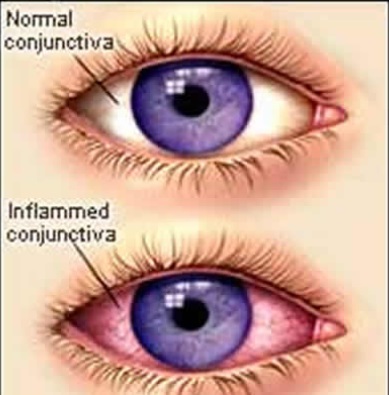News
Why You Shouldn’t Use Urine, Breast Milk To Treat ‘Apollo’ – Doctors Warn Nigerians
Millions of Nigerians have been warned by the Nigerian Optometrics over their unconventional way of treating conjunctivitis, popularly known as ‘apollo.’
 The Nigerian Optometric Association on Monday warned the general public against the use of urine, breast milk, and acid, among other unconventional stuff, when infected with conjunctivitis, popularly known as ‘apollo.’
The Nigerian Optometric Association on Monday warned the general public against the use of urine, breast milk, and acid, among other unconventional stuff, when infected with conjunctivitis, popularly known as ‘apollo.’
President of the association, Dr. Ozy Okonokhua, made the call in an interview with the News Agency of Nigeria in Abuja on Monday.
Okonokhua frowned at such practices, saying it is harmful to the eyes.
He, however, urged the populace to seek help from trained and licensed professional optometrists when infected with any eye problem.
“Apollo is a virus that is self-limiting, which means it cannot be cured with local medicine or self-medication.
“It is a viral infection enhanced by dryness more common during the dry season and the bacteria infection, which is secondary, is best treated with antibiotics,” he said.
Okonokhua further advised the populace to imbibe the habit of regular hand washing to avoid contracting viral and bacterial infection of the eye.
NAN reports that ‘conjunctivitis’ in medical parlance or ‘apollo’ in local parlance is inflammation of the conjunctiva, a thin, filmy membrane that covers the white portion of the eyes.
Conjunctiva, which produces mucous to coat and lubricate the surface of the eye, contains fine blood vessels that can be seen on close inspection.
Similarly, Dr Njong Onugu, Head of Eye care Unit, Public Health Department of Health and Human Service Secretariat, FCTA, identified apollo as a common eye problem that affects people of all age and has no cure.
Onugu said that healthcare workers have high risk of exposure to viruses that could cause viral conjunctivitis.
The eye care specialist, however, urged the public to maintain proper hygiene by washing their hands thoroughly before and after applying eye drops on infected persons.
She identified some causes of irritation of the eye layer to include allergies in the environment which could be due to air pollution, smoke, pollen from trees and grass.
According to her, when the conjunctiva becomes irritated or inflamed, the blood vessels which supply it enlarge and become more prominent, causing the eye to turn red.
“Symptoms include pinkness or redness in the eye, inflamed inner eyelids, blurred vision, sandy or scratchy feeling in the eye, pus, mucous or watery discharge from the eye.
“You must avoid sharing of towels, cosmetics or eye-drops with others that are affected as this can predispose you to it.
“Infected children should be distanced from schools, camps and swimming pools until they are cured,” Onugu advised.
Follow us on social media:-

 Celebrity Gossip & Gist1 day ago
Celebrity Gossip & Gist1 day agoMoment stage collapses on Odumodublvck during concert performance (Video)
-

 Economy1 day ago
Economy1 day agoPresident Tinubu cancels Lagos engagements in honor of food stampede victims
-

 Celebrity Gossip & Gist1 day ago
Celebrity Gossip & Gist1 day ago“The quality of a woman isn’t measured by the hair on her head but by her brain” – Yul Edochie cautions ladies against killing themselves over expensive hair this Christmas


